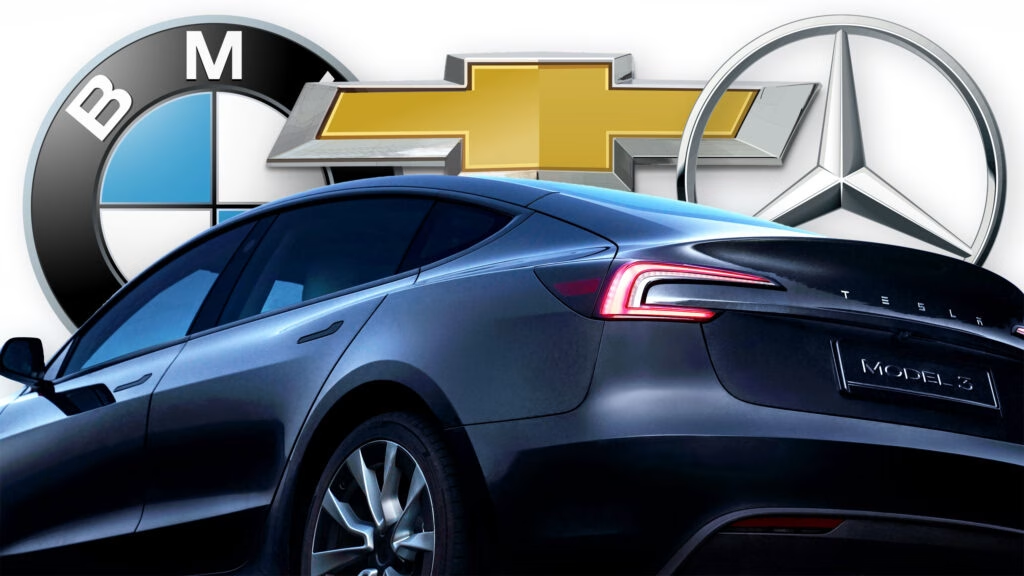Why Are So Many Tesla Owners Jumping Ship in 2025?
Tesla once seemed untouchable, the darling of early adopters and tech enthusiasts alike. But the latest numbers from S&P Global reveal a surprising twist: Tesla’s brand loyalty in the US has dropped by 9.4 percent over the past year, now sitting at 58.1 percent. That puts it behind Ford (59.6 percent) and only a hair ahead of Chevrolet (58 percent). So what’s going on? Why are so many Tesla owners not just switching to other electric vehicles, but in some cases, returning to gas—or even diesel?
What’s Driving Tesla Owners Back to Gas and Diesel?
It sounds almost like a punchline: former Tesla drivers rolling up in diesel pickups. Yet, the data backs it up. In the first half of 2025, 31.1 percent of Tesla defectors chose something other than an EV for their next ride. Most went hybrid (28.2 percent), but a notable 2.9 percent opted for diesel. For context, that’s a small slice, but it’s a head-turner given the usual narrative of EV superiority.
The reasons? It’s not about pinching pennies. Most of these households are still buying vehicles in the $60,000 to $75,000 range. Instead, it’s about variety and personal preference. Tesla’s lineup, dominated by the Model 3 and Model Y, is starting to feel stale to some. Meanwhile, legacy automakers like Ford, Chevrolet, and BMW are offering more choices—body styles, features, and yes, even fuel types.
Is Tesla’s Lineup Getting Old?
Let’s be honest: the Model 3 and Model Y are solid cars, but their bones go back several years. While both have seen updates, the lack of genuinely new models is starting to show. S&P Global analysts point out that buyers are increasingly tempted by brands with broader and fresher offerings. BMW, Mercedes-Benz, and Toyota are among the top destinations for ex-Tesla owners, thanks to their diverse lineups.
There’s also the matter of image. Elon Musk’s increasingly polarizing public persona is turning off some buyers. For a brand that once thrived on cool-factor and innovation, that’s a real risk.
Are EV Owners Losing Faith in Electric Cars?
The short answer: not entirely, but the shine is wearing off. Loyalty to battery-electric vehicles overall has slipped to 58.7 percent in 2025, down from nearly 68 percent just two years ago. Compare that to traditional gas-powered cars, which still enjoy loyalty rates around 84 percent (though even that’s slowly declining).
Interestingly, loyalty among buyers of non-Tesla EVs is actually climbing. Fuel-type loyalty for these brands has hit 46.4 percent, up from about 45 percent in 2020. That suggests the broader EV market is maturing, with more competitive models keeping buyers in the fold—even as Tesla’s grip loosens.
Who’s Winning When Tesla Owners Leave?
The numbers tell a fascinating story. When ex-Tesla owners move to Chevrolet, 55 percent go back to gas, 37 percent stick with EVs, and nearly 8 percent end up in diesels—think Silverado pickups. For those switching to Ford, half buy gasoline models, 29 percent stay electric, 13 percent go hybrid, and 5 percent opt for diesel.
Tesla’s conquest ratio over Ford has shrunk to 1.9-1 from 2.4-1 a year ago. Against BMW, the drop is even more dramatic: from a 9-1 advantage to just 1.5-1, as BMW’s electric lineup expands.
Is Price the Real Issue for Tesla Defectors?
Surprisingly, no. The data shows that most households leaving Tesla aren’t trading down in price. Instead, they’re seeking something that better fits their lifestyle or tastes. Maybe it’s a pickup for weekend projects, or a luxury SUV with features Tesla doesn’t offer. The bottom line: in a market with more choices, even Tesla has to work harder to keep its customers.
What Does This Mean for the Future of Electric Cars?
Tesla’s story is a microcosm of the broader EV market. As competition heats up and more models hit the road, brand loyalty is no longer a given. Buyers want variety, fresh design, and a brand image that resonates with their values. The days of defaulting to Tesla are fading—now, every automaker has to earn repeat business.
The big takeaway? Brand loyalty in the EV world isn’t about perfection—it’s about smarter adjustments. Start with one change this week, and you’ll likely spot the difference by month’s end.

